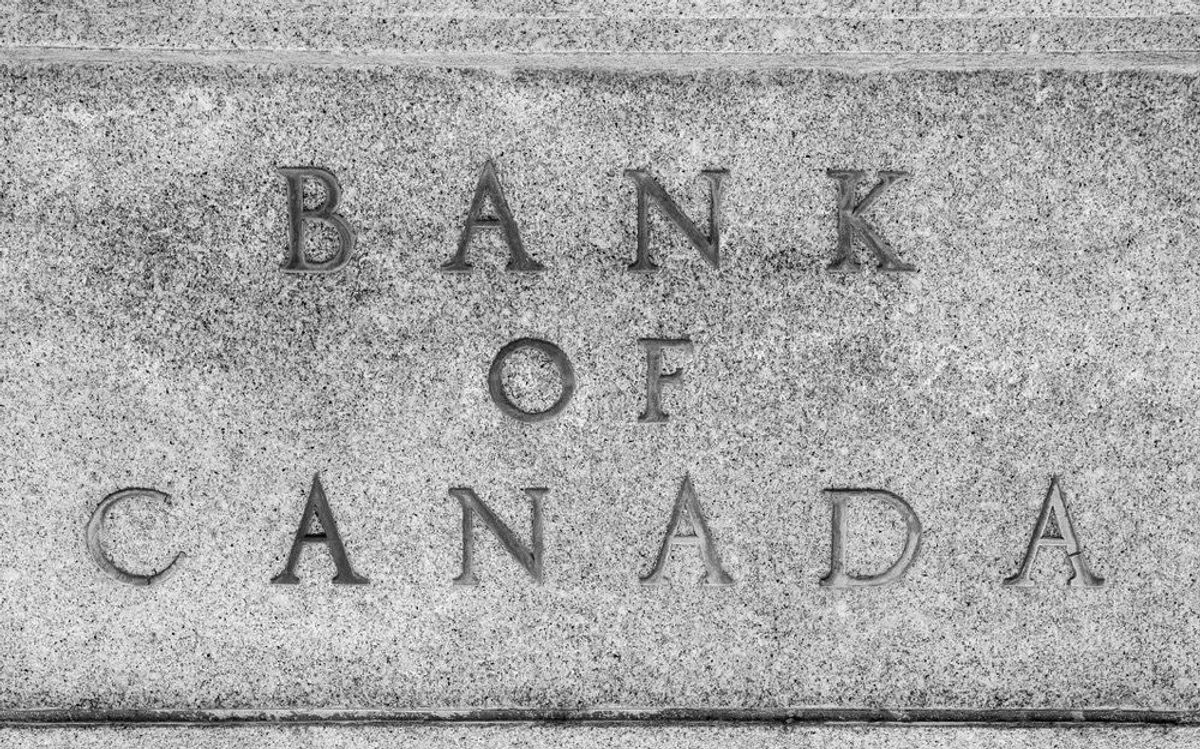Canadians have felt considerable pain at the gas pumps in recent weeks, as the market grapples with energy price shock amid the ongoing Russian invasion of Ukraine.
Economic sanctions, namely the banning of Russian oil and gas imports into Canada and the US, have contributed to supply shortages and extremely volatile oil prices, with the price per barrel anticipated to cross the $150 USD threshold this week -- which will result in an unwelcome milestone of $2 per litre.
The impact is felt far beyond the gas station, as higher fuel prices put pressure on everything from transportation to food costs. But consumer wallets could be in for another hit: higher monthly mortgage payments.
With Canadian inflation already pushing a 30-year high before the onset of war, central banks are now finding themselves between a rock and a hard place; the Bank of Canada implemented its first rate hike this month in efforts to tame runaway inflation growth -- which, at 5.1%, is well beyond its 2%-target comfort zone -- kicking off an overall higher interest rate environment for borrowers, especially those holding variable-rate mortgages and lines of credit.
READ: Variable Mortgage Rates Still Make Sense; Here’s How to Take Advantage
Several more hikes are baked in for 2022, which are already expected to have a material impact on borrower’s monthly debt servicing costs. But could the impact of energy prices on inflation prompt the Bank of Canada to take an even more aggressive approach?
Get Ready for 7% Inflation Growth
Pedro Antunes, Chief Economist at the Conference Board of Canada, says that should today’s gas price trends hold, inflation growth will “escalate quite rapidly”; based on initial calculations, the CBOC expects it could reach 7% year-over-year growth this month.
“We know essentially that what we’re living right now -- because of what’s happening in the Ukraine -- is a global and really important commodity price shock that’s going to have repercussions across the board,” he tells STOREYS. “We’re hearing about it in food prices, transportation costs, etc. at a time when inflation was already high, and supply chain bottlenecks were very real and they continue to be stressed even more.”
“All of this is very concerning for central bankers, in Canada and the world over, around what this means for monetary policy.”
While the Bank of Canada may be less concerned about the temporary impact of gas prices themselves, what will be a crucial development, Antunes says, is whether higher prices will start to be built into wages. “If that happens, then you get into that wage price spiral that was very hard to get out of, back in the early 1990s.”
“We’ve lived through 30 years of almost no inflation in Canada -- occasionally we’d have prices spike on some goods -- but it never got built into people’s expectations,” he says. “So I think that central banks are just really concerned about the messaging, about essentially ensuring that inflation expectations for households and businesses remain anchored.”
Risks From War Could Have Opposite Effect on BoC
On the other hand, while inflation is assured to run historically hot, that won’t necessarily guarantee the BoC will hike faster. The resulting geopolitical uncertainties from war and potential downside for the economy could actually have an opposite effect, leading to a slower hiking cycle.
This is reflected in recent comments from US Federal Reserve Chair Jerome Powell that the Russian-Ukraine conflict is a “game changer” that policymakers will have to weigh carefully. This could prompt the BoC’s American counterpart to introduce only a 25-point hike in their announcement on March 16, rather than an anticipated 50.
Notes Antunes, “Current stresses to the system are adding to inflationary pressures, but I think the banks will also have to consider how volatile the situation is. And in fact, what we’re hearing from a lot of central banks is that they may not tighten as quickly as they might have prior because of the uncertainty and the volatility created by this war, and the impact that might have on business investment, on household spending to begin with. So despite the fact that this is a price shock, we may not see the central banks react as quickly as they might have if we hadn’t had this war.”
Inflation Pain Can’t be Understated
However, while more prudence may be warranted for monetary policy in the face of war, resulting inflation pain will be felt keenly by households, posits research from Sal Guatieri, Senior Economist and Director, Economics at Bank of Montreal.
In a BMO Economics note titled “Canadian Housing: Caught in the Crossfire”, Guatieri writes, “Although [BoC] Governor Macklem said uncertainty caused by the war warrants a ‘careful’ approach, any caution will be sorely tested if inflation pushes further beyond three-decade highs.
“By further snarling global supply chains and sending many commodity prices to multi-year highs (oil and wheat at 13-year peaks and aluminum at all-time highs) the war is an unwelcome guest at the inflation table. The Governor isn’t ruling out the possibility of launching a 50-point missile if needed.”
At the end of the day, though, says Antunes, inflation shock is coming for Canadians, whether or not they have a mortgage.
“This is something that we haven’t lived through in a very long time. People, I don’t think, are aware of how quickly inflation erodes our purchasing power, and the situation we’re living in is very difficult for households, and especially lower income households who are having to lend much more of their income to consumer spending, and a much larger portion going to food and transportation and these things are really escalating in terms of their costs.”





















